
Claudio E.A. Pizzi (born 20 September 1944, Milan) is an Italian logician and epistemologist.

Claudio E.A. Pizzi (born 20 September 1944, Milan) is an Italian logician and epistemologist.
Pizzi completed his Master's degree in philosophy from the Universita' degli studi di Milano in 1969. From 1976, he taught logic for three years at the University of Calabria. He then worked as a professor of logic and of philosophy of science at the University of Siena from 1979 to 2014, in which he became a full professor in 1997. Beginning from 1992, he worked for several Brazilian universities and especially for Centro de Logica, Epistemologia e Historia da Ciencia (CLE) of the University of Campinas. From 2008–2012, he taught logic of proof at the Faculty of Law of the Universita' di Milano-Bicocca. [1]
After completing his studies, Pizzi edited the Italian translation of G.E. Hughes and M.J. Cresswell's An Introduction to Modal Logic [2] and published two anthologies in 1974 and 1979, aiming to spread the knowledge of two areas of the intensional logic unknown in Italy: tense logic [3] and conditional logic. [4] In a number of academic papers, he developed a variant of so-called connexive logic named "logic of consequential implication", [5] which turns out to be translatable in the main system of propositional modal logic and so decidable via the tableaux method. [6]
Pizzi is also known for his contributions to modal logic concerning the problem of defining necessity in terms of contingency [7] and the use of Aristotelian squares and cubes in visualizing the relations between modal notions. [8] In collaboration with Brazilian logicians, Pizzi has explored the subject of multimodal logics (i.e. of logics whose language has more than one modal primitive), about which he produced a monograph. [9]
His work in the field of epistemology has been mainly concerned with the counterfactual theory of causation, to which he devoted a book (1997) and a wide number of papers. He also published a book that is a collection of essays about abduction and the logic of legal proof (2009). His last book (2017) contains a methodological analysis of the investigations into a plane crash that took place in 1980, known as the "Ustica massacre".

Arthur Norman Prior, usually cited as A. N. Prior, was a New Zealand–born logician and philosopher. Prior (1957) founded tense logic, now also known as temporal logic, and made important contributions to intensional logic, particularly in Prior (1971).
In logic, temporal logic is any system of rules and symbolism for representing, and reasoning about, propositions qualified in terms of time. It is sometimes also used to refer to tense logic, a modal logic-based system of temporal logic introduced by Arthur Prior in the late 1950s, with important contributions by Hans Kamp. It has been further developed by computer scientists, notably Amir Pnueli, and logicians.
Modal logic is a kind of logic used to represent statements about necessity and possibility. It plays a major role in philosophy and related fields as a tool for understanding concepts such as knowledge, obligation, and causation. For instance, in epistemic modal logic, the formula can be used to represent the statement that is known. In deontic modal logic, that same formula can represent that is a moral obligation.
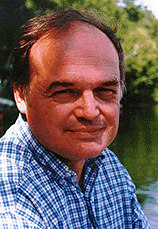
George Stephen Boolos was an American philosopher and a mathematical logician who taught at the Massachusetts Institute of Technology.
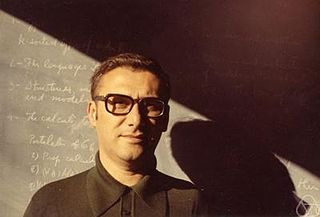
Newton Carneiro Affonso da Costa is a Brazilian mathematician, logician, and philosopher. He studied engineering and mathematics at the Federal University of Paraná in Curitiba and the title of his 1961 Ph.D. dissertation was Topological spaces and continuous functions.

GiacomoZabarella was an Italian Aristotelian philosopher and logician.
Gianni Baget Bozzo was an Italian Catholic priest and politician.

Piergiorgio Odifreddi is an Italian mathematician, logician, student of the history of science, and popular science writer and essayist, especially on philosophical atheism as a member of the Italian Union of Rationalist Atheists and Agnostics. He is philosophically and politically near to Bertrand Russell and Noam Chomsky.
Andrea Bonomi is an Italian philosopher and logician, who studied with Enzo Paci.
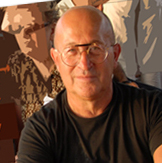
Lorenzo Magnani, is an Italian philosopher who teaches philosophy of science in the Department of Humanities, Philosophy Section, at the University of Pavia, full professor and director of the Computational Philosophy Laboratory and, since 2023, is also professor on contract of Artificial intelligence and knowledge, a course sponsored by Collegio Cairoli and Collegio Giasone del Maino, Pavia. He has been (2006/2012) visiting professor at the Sun Yat-sen University in China. In the event of the 50th anniversary of the re-building of the Philosophy Department of Sun Yat-sen University in 2010, an award was given to him to acknowledge his contributions to the areas of philosophy, philosophy of science, logic, and cognitive science.
Nicla Vassallo, is an Italian analytic philosopher with research and teaching interests in epistemology, philosophy of knowledge, theoretical philosophy, as well as gender studies and feminist epistemology. She is currently a Full Professor in the Department of Philosophy at the University of Genoa, a Research Associate of National Research Council, and on List of alumni of King's College London. She also is a poet and lives in Rome.

Gianfranco Miglio was an Italian jurist, political scientist, and politician. He was a founder of the Federalist Party. For thirty years, he presided over the political science faculty of Milan's Università Cattolica. Later on in his life, he was elected as an independent member of the Parliament to the Italian Senate for Lega Nord. The supporters of Umberto Bossi's party called him Prufesùr, a Lombard nickname to remember his role.
In logic and philosophy, S5 is one of five systems of modal logic proposed by Clarence Irving Lewis and Cooper Harold Langford in their 1932 book Symbolic Logic. It is a normal modal logic, and one of the oldest systems of modal logic of any kind. It is formed with propositional calculus formulas and tautologies, and inference apparatus with substitution and modus ponens, but extending the syntax with the modal operator necessarily and its dual possibly.

Walter Alexandre Carnielli is a Brazilian mathematician, logician, and philosopher, full professor of Logic at the State University of Campinas (UNICAMP). With Bachelor and M.Sc. degrees in mathematics at the State University of Campinas in Campinas he obtained his Ph.D. in 1984 from the same university under the supervision of Newton da Costa and subsequently worked as a postdoc at the University of California at Berkeley as a Research Fellow, following an invitation by Leon Henkin.
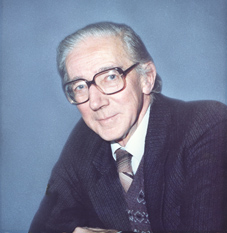
George Edward Hughes was an Irish-born New Zealand philosopher and logician whose principal scholarly works were concerned with modal logic and medieval philosophy.
Franco Fornari was an Italian psychiatrist, who was influenced by Melanie Klein and Wilfred Bion. He was a professor at the University of Milan and the University of Trento. From 1973 to 1978 he served as president of the Società Psicoanalitica Italiana.

Giovanni Girolamo Saccheri was an Italian Jesuit priest, scholastic philosopher, and mathematician. He is considered the forerunner of non-Euclidean geometry.
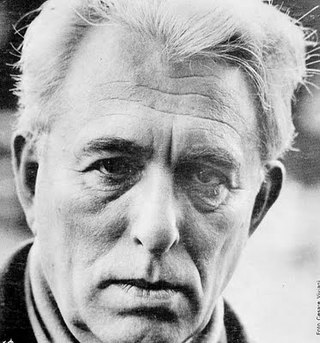
Franco Fortini was the pseudonym of Franco Lattes, an Italian poet, writer, translator, essayist, literary critic and Marxist intellectual.
Carlo Dalla Pozza was an Italian philosopher of science and logician.